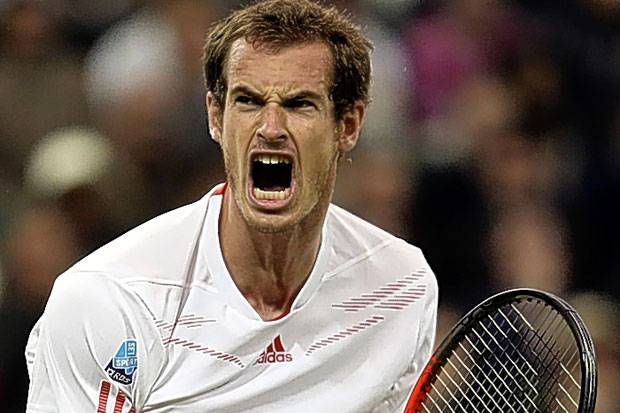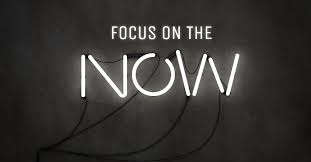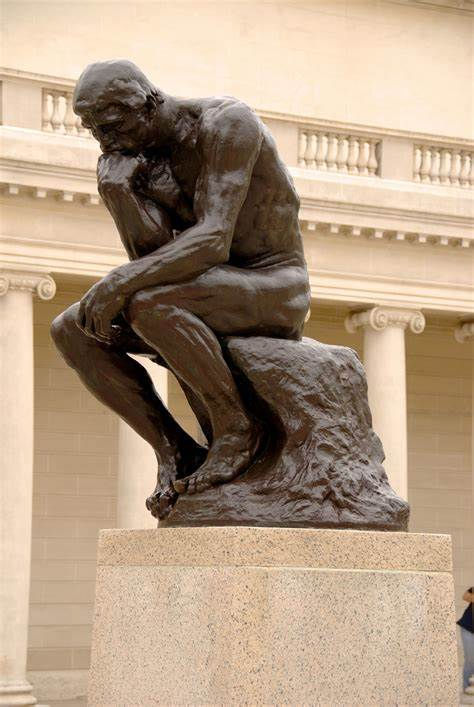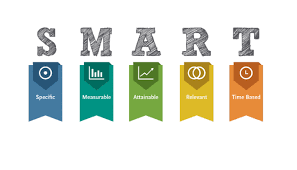Rider Psychology: An Equestrians Guide To Mindset.
- Daniel Petho
- Jan 15, 2021
- 10 min read

We hear this word all the time; Mindset! We hear it in popular grassroots sport, in the mainstream of coaching across many individualist sports, on social media and in magazines. Indeed, many coaches and athletes have opened up to the idea of mindset as a basis of the foundations of performance and performance psychology. But what exactly is mindset?
Mindset itself has many definitions depending on whom you talk to. According to Mind Valley, the traditional mindset definition refers to an individual’s way of thinking. But the meaning of mindset may differ from person to person. It could be the way you perceive something, have an opinion, if you put things down to fate or chance and even how you try to cope with stress. This definition in itself is very superficial and you'll see coaches all over the place talking about mindset and come up with examples of changing thoughts, perception and they will give you the "winning mindset" a without the theoretical underpinning of the psychological basis as to how this occurs, why it occurs and where it comes from to how we can change our mindset. Don't forget and be wary, they will slap a hefty "try my mindset programme for £600 while you're here and I'll make you have a winning mindset in 8 days" or something to that effect promising you this is a fast track to HOYS .

The truth is, under the superficial popularised layer, many whom are not formally trained within psychology will call themselves a Mindset Coach without credibility. There is a plethora of psychological underpinning and applied psychology that many do miss out, but this is the crucial area for riders to develop, otherwise its just a "fad". Mindset is so much more deeper than we think, it comes down to our own beliefs and values, some of our beliefs and values we may have ingrained since childhood. Beliefs form values, values create our motivation, motivation shapes our attitude and this reflects our behaviour and the environment with others. Mindset comes from the deepest part of our core and whom we really see ourselves and what we believe in. This affects every part of our psyche and sport is no exception, indeed the great benefit of mindset in sport is that it has huge transferrable skills between sport and our personal lives whether that is your career, your home life, your family life and even your personal development. Your mind is divided into your conscious and unconscious mind. Interestingly, the unconscious takes up a staggering 96% of your mind space! Your unconscious mind is the part we want to work with.

So if mindset starts with our beliefs, where do we go from here?
Well the start is the 2 Mindset categories. Carol Dweck, a Psychologist at the top of her field specialising in motivation, explains these two as the Growth and Fixed Mindsets.
Growth Mindset
The growth mindset incorporates individuals who believe their talents and abilities can be developed (through hard work, good strategies, and input from others such as feedback and constructive criticism), another way of describing it is “the understanding that abilities and knowledge can be developed”. People with the growth mindset have the understanding that they are able to continuously learn, improve and know that they can get smarter, more intelligent and more talented through putting in time and effort. This means athletes are able to both win and lose gracefully, maintain a high sportsmanship and they’re also able to enjoy and share the successes of other athletes as well. This mindset results in open minded, hardworking, calm athletes that are coachable, making them able to reach their full potential.
Growth mindset athletes think that:
They can improve their skills.
Skills are the result of their hard work.
Challenges offer a chance to test themselves further.
Mastery comes from effort put in.
They should embrace challenges.
They can learn from feedback given.
Setbacks offer more opportunities to learn.
Setbacks can be a great wakeup call.
Feedback can be used to help find areas that can be improved upon.
Effort is an essential trait.
Fixed Mindset
A fixed mindset is completely the opposite, this is one that assumes your abilities and understanding are relatively fixed and cannot move. We see this in people whom believe their performance is down the fate or they are at the top of their knowledge, field or game. Those with a fixed mindset may not believe that intelligence can be enhanced, or that you either “have it or you don’t” when it comes to abilities and talents. As a result, this mindset is a typical training in more emotional athletes that will constantly socially compare themselves to others. From this our outlook will be that of fearfulness, rigidity and limit our potential as an athlete.
Some aspects of the fixed mindset normally include:
Challenges should be avoided.
People are born with skills.
Perseverance doesn’t help.
Challenges may show off a lack of skill.
If individuals have to work hard, it’s because they aren’t good enough.
Effort isn’t really needed.
If failure occurs, it’s the fault of someone else.
Feedback is something to take personally.

So where does that leave us? If we know that there are two mindsets and from the examples above, we can see that we have traits from both mindsets. We will have also been thinking about where do we sit, do we have a tendency towards one or the other or are firmly within one?
Does this mean we are fixed to stay in that mindset? No.
The good news is you can change your mindset.
However, like learning a new skill, you have to be willing to embrace the work and time it requires. The brain is a tool that is used to keeping us alive, throughout our lives are a accustomed to doing things and having behaviours because its suited our survival traits. This is why many people will do more and more of a behaviour if they know there is no consequences as its keeping them safe, its an evolutionary tool. It is, however, that the mind doesn't come with a manual like a car or toy set, indeed we have gone along with influences from our environment and we have adapted as a way of survival. If you were told as a child, "you won't go far" or " you wont make it as an athlete" or "not a chance will you do that" your mind will take that on board and we will feel less confident as our value is "I'm not good enough". So when you fail, this is your mind searching for validation to say "yeah, see you're a failure".
CHALLANGE.
Have a think which one of these affects/relates to you and write down why.
1)You feel the need to prove yourself. You constantly feel the need to be validated. You need proof that you have what it takes to become a successful rider.
2)Your biggest focus is to develop yourself to become the best rider you can be. You want to stretch yourself to learn something new every day and you are constantly thinking about how you can further improve yourself or your horse.

A Journey of Change
So how can we change and promote a positive mindset?
Firstly I'd recommend taking the self-assessment on Dweck’s website, which will give you an indication of your current mindset and where you currently feel you are.

Step 1. Embrace your current mindset.
The first step is to actually embrace your fixed mindset. This may look to be counterintuitive at first, however the more you judge yourself for thinking a certain way, the more you stay in a fixed world (Humans will always focus on the negatives first). Allow yourself to become aware when you are thinking with a fixed versus a growth mindset. The first step is always awareness.

Step 2. Become aware of your fixed mindset triggers
Let’s take it a step further, focus on becoming aware of what your triggers are. When do you fear failure? When do you say to yourself “now I need to prove myself” or “now I need to do it perfectly” or " I should be at this level by now? The more aware you are of your triggers, the faster you can detect your fixed persona or even prevent it from taking over. (Have a read of of my blog on The Chimp Paradox)

Step 3. Educate yourself
At first glance, this is going to perhaps look a bit odd, but now that you know when your fixed character creeps up on you, you could give it a name. Whenever, for instance, “Little Miss Perfect” or "Mr Know it all" shows up you know to take a step back. Instead of letting them convince you you’re useless, you turn it around and educate them. Use questions such "What evidence is there this is accurate?", “Is that really 100 percent true?”, “What can I learn from this?”, or “How can this fall, mistake, or failure make me stronger, better, and faster?” This is something called Socratic Questioning, you're turning your minds perception around. Another great way to educate your mindset is to use these three questions at the end of every day and after each class, training session, and show:
What went well?
What could have been better?
How am I going to improve this?

Dan's Psych Tips.
Staying in the present is a key method is supporting your growth mindset. Staying in the present refers to keeping your mind at the task at hand so looking ahead to the next movement or fence rather than thinking about the mistake you just made. The easiest way of this is to say to yourself a quick cue word "next" to reset your mind to focus on the next thing coming up (it actually helps clear the mind too)

You wouldn't normally believe it, but modern studies are showing that people whom get up and make a positive affirmation, quote or mantra are more successful, positive, compassionate and open minded during the day. When we keep this up, our psyche changes too. We are training our brain to have a different outlook that will support our success. A positive affirmation in the morning affects both our motivation and outlook for the better.

3)Be kind to yourself.
Compassion is something that we as humans love to give to another, but self-compassion feels like a taboo. We live in a society whereby we have expectations that are ingrained from childhood. We must be married, we must have a big house, we must have children, we must have a great job. See where I'm going here? So when it comes to sport, we turn around and say "I must win", "I should be going better by now" "I'm not good enough for my horse". Life can be tough and we wont be able to meet expectations, we live to fear what we think is failure. But compassion, saying "its okay, its been tough but I can use this to work harder, its a lesson I can use to be better" Write yourself a compassion letter or even have a reflection exercise whereby you can say that "this happened but its okay because I can learn from this and do better". This also helps lead to an action plan too.

4) Believe in the concept of constructive criticism.
When provided feedback and learn from the mistakes of those around you. Remember on that Dressage test its just feedback, its not personal, so use it as a platform to work on.

5) Unleash your inner Mr Thinker (Reflect).
We've all seen the statue of Mr Thinker, the monument to reflection. Reflection is such a powerful tool in the modern age as we are able to use it as a motivation, open up more the growth mindset and also use it for self-compassion.
Reflection exercises are great because they are so simple and so thought provoking too. All you need to do is: after spending some time away from the activity, think
What went well
What didn't go so well
How can I improve on it?
See, Simples!

6) Gratitude.
Grab a diary from your local W.H Smiths, stationary shop or supermarket and at the end of every day or training session, write down 5 things you are grateful (or that went well) for and 5 things you’re grateful your horse has achieved (even if it’s the same as he did yesterday or the smallest action today). This not only promotes the psychological benefits we mentioned before, but also increases your horsemanship intelligence (understanding your horses’ behaviour and reasoning to it) and increasing your bond beyond what you thought it could go before. Even if this is on a bad day, you can always find 5 good aspects (this brings us back to the open mindset) to write down, all that is required is your determination to get into a routine of writing this. Take a step back, break the habit of the modern-day life and organise some time for this, you’ll soon feel the benefits. Give it a try and stick at it!

7) Change Your Vocabulary.
In psychology we call this ‘Cognitive Restructuring’ which we aim to replace irrational negative thought processes into a more open, progressive and positive one. In lamens terms, we take negatives and turn them into positives, simple!
Whoa there, before you log off and begin to censor the dictionary, lets bring some structure to this..
Rather than saying that you’re “nervous”, change it to “you’re excited”. We say all the time that our horses are just “excited” when they’re fresh or something spooks them it is seldom that we say they’re nervous, so why should we daunt ourselves with such negative words and thoughts? Negative and, more recently, cynical thoughts are hardwired aspects of human life. We know that negative thoughts or negative news has a greater and more lasting impact upon us than the good, so we are further drawn towards it. Thus, it is us breaking the cycle of negativity and producing a more open and progressive self.

8) Goal Setting.
We all have goals as to what we want to achieve in life, whether its that dream house, car or career to the fame and fortune of the public image, yet what really matters is the process to how we get there. If we want to get that dream house, we look at the price, the cost of the deposit and the mortgage rate to sustain. We do tend to look at this in a systematic way, you wouldn’t apply for a loan at the bank and think later how you’re going to pay it back, would you? This is the exact same in sport. We will have an aim or inspiration to achieve and to be the best, but we wouldn’t go with that final aim as our first aim. We have the break down this aim by the process to which we get there, so if you wanted to be an Olympic athlete, you would start by working your way back to where you are now. The categories to which are required to push you up to the next level are placed within yourself and the National Governing Body.

Just remember – when you focus on improvement, growth, and the process of becoming a better rider, over time the results will take care of themselves.







































Comments